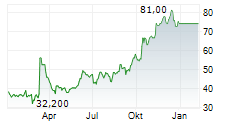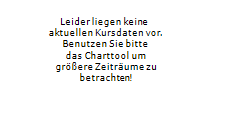
- Trial met the primary efficacy endpoint achieving a clinically and statistically significant response in maintaining hematocrit control below 45% without phlebotomy
- Rusfertide was associated with lower disease-related symptoms in patients with moderate/severe scores at baseline as assessed by the Myeloproliferative Neoplasm Symptom Assessment Form
- REVIVE is one of two pivotal studies, including an ongoing Phase 3 study, VERIFY, which is nearing enrollment completion
NEWARK, CA / ACCESSWIRE / February 21, 2024 / Protagonist Therapeutics, Inc. (NASDAQ:PTGX) ("Protagonist" or the "Company") today announced publication in the New England Journal of Medicine (NEJM) of the REVIVE Phase 2 study (NCT04057040) results evaluating the efficacy and safety of rusfertide in polycythemia vera (PV), a myeloproliferative neoplasm affecting approximately 160,000 patients in the United States (US). Rusfertide, a peptide mimetic of the natural hormone hepcidin, represents a novel erythrocytosis-specific approach for the potential treatment of PV.
The study demonstrated that rusfertide controlled erythrocytosis, maintained hematocrit levels <45% and eliminated the need for phlebotomies in PV patients, and was associated with decreased disease-related symptoms. Rusfertide was well tolerated, and the incidence of adverse events was similar for patients treated with or without concurrent cytoreductive therapy. The most common adverse events were grade 1-2 injection site reactions and no clinically significant laboratory abnormalities were reported. No grade 4 or 5 adverse events were noted, and serious adverse events reported were consistent with the patients' PV and underlying co-morbidities.
"Frequent phlebotomies due to poor hematocrit control can be a major burden for PV patients, prolonging physician visits, worsening iron deficiency, and leading to additional debilitating non-hematological symptoms," said Ronald Hoffman, M.D. the Albert A. and Vera G. List Professor of Medicine (Hematology and Medical Oncology) and Director of the Myeloproliferative Disorders Research Program, Icahn School of Medicine at Mount Sinai Tisch Cancer Institute (New York, NY). "The study results of the Phase 2 REVIVE clinical trial published in the New England Journal of Medicine have clearly shown that rusfertide maintained hematocrit control, decreased phlebotomy requirements, and improved signs and symptoms of iron deficiency."
PV is characterized by erythrocytosis and variable increases in leukocytes and platelets. PV patients exhibit increased incidence of cardiovascular events and frequently experience systemic symptoms including itching, night sweats, difficulty concentrating, and fatigue. Current guidelines for treating PV focus on reducing morbidity and mortality by maintaining hematocrit levels <45%. Several "real world" studies indicate that currently available treatments are unable to consistently maintain hematocrit levels below 45%, leaving many patients at risk.
"Standard of care treatments in PV are sometimes not well tolerated and can exacerbate fatigue and other symptoms. Phlebotomies are often burdensome and contribute to symptoms of iron deficiency. Rusfertide could be a potential novel treatment option for a broad range of PV patients based on these positive results from the Phase 2 REVIVE study," said Arturo Molina, M.D., M.S., Protagonist Chief Medical Officer. "We continue to evaluate the long-term durability of response and safety of rusfertide in patients participating in the Phase 2 REVIVE study and are looking forward to the results from the Phase 3 VERIFY study in 2025."
Phase 2 REVIVE Trial Results
The NEJM manuscript presents results of the Phase 2 REVIVE trial, which consisted of three parts, with 70 patients enrolled in Part 1 and 59 patients randomized to placebo (29) or rusfertide (30) in Part 2. The primary efficacy endpoint was the difference in the proportion of responders receiving rusfertide or placebo during the double-blind, randomized withdrawal portion of the study (Part 2). Patients were considered responders if they achieved hematocrit control, did not receive a phlebotomy, and completed 12 weeks of dosing in Part 2. Response was defined as not meeting any of the "phlebotomy-eligibility" criteria including: 1) hematocrit =45% that was =3% higher than their week 29 pre-randomization hematocrit value, or 2) hematocrit >48%, or 3) an increase of =5% in hematocrit compared to their week 29 pre-randomization value.
The REVIVE trial met the prespecified primary efficacy endpoint in the Full Analysis Set with high statistical significance:
- 69.2% (18/26) of subjects on rusfertide were responders vs. 18.5% (5/27) responders on placebo (p=0.0003) in the Full Analysis Set (n=53).
In addition, the trial also met the efficacy endpoint in the Randomized Analysis Set with high statistical significance, as presented in the NEJM article:
- 60.0% (18/30) of subjects on rusfertide responded vs. 17.2% (5/29) on placebo (p=0.002) in the Randomized Analysis Set (n=59), a sensitivity analysis, which includes 6 patients who had to discontinue treatment in Part 2 because of the brief clinical hold and were considered as non-responders.
Part 3 is an open label extension (OLE) of up to 3 years. The durability of effect was sustained, with some patients remaining virtually free of phlebotomy on study for over 2.5 years. Encouraged by these durability of response findings, the long-term extension THRIVE study has been initiated wherein patients can continue with rusfertide treatment for an additional 2 years, up to a total of 5 years.
Consistent with the mechanism of action, rusfertide treatment also resulted in improvement of serum ferritin levels, demonstrating redistribution of systemic iron stores. Rusfertide treatment was associated with lower severity of disease-related symptoms including fatigue, early satiety, night sweats, problems with concentration, inactivity, and itching in patients with moderate or severe individual symptom scores at baseline as assessed by the Myeloproliferative Neoplasm Symptom Assessment Form (MPN-SAF).
"We are extremely pleased with the performance of rusfertide to date, and publication of these positive findings in treatment of PV in the New England Journal of Medicine", said Dinesh V. Patel, Ph.D., President and CEO of Protagonist. "Currently available therapies leave a significant number of the roughly 160,000 PV patients in the U.S. requiring frequent phlebotomy because of suboptimal hematocrit control. Rusfertide, by virtue of being an erythrocytosis specific agent, has the potential to be a novel therapeutic option and we very much look forward to working closely with our new partners at Takeda to bring this important new medicine to PV patients around the world."
Under the terms of the recently announced agreement, Takeda will be Protagonist's co-development, U.S. co-commercialization partner with a 50:50 profit share, and with exclusive ex-U.S. global rights to commercialize rusfertide.
Phase 3 VERIFY Trial
The Phase 3 VERIFY trial (NCT05210790) is a global Phase 3 randomized, 250-patient placebo-controlled trial, which is nearing completion of enrollment. The trial evaluates the efficacy, symptom burden and safety of once-weekly, subcutaneously self-administered rusfertide in patients with uncontrolled hematocrit who are phlebotomy dependent despite standard of care treatment.
About Protagonist
Protagonist Therapeutics is a biopharmaceutical company with peptide-based new chemical entities (NCEs) rusfertide and JNJ-2113 (formerly PN-235) in advanced stages of clinical development, both derived from the Company's proprietary technology platform. Protagonist scientists jointly discovered PN-235 (now known as JNJ-2113) as part of Protagonist's Interleukin-23 receptor (IL-23R) collaboration with Johnson & Johnson and followed it through IND-enabling pre-clinical and Phase 1 studies, with Johnson & Johnson assuming responsibility for further clinical development. Rusfertide, a mimetic of the natural hormone hepcidin, is the Company's lead drug candidate currently in a global Phase 3 development program. The randomized portion of the Phase 2 REVIVE study was unblinded, showing positive results. Patients who complete participation in the REVIVE study are eligible to participate in the ongoing open-label extension THRIVE study, which provides up to two additional years of rusfertide therapy. The global Phase 3 VERIFY study of rusfertide in polycythemia vera is ongoing. Rusfertide will be co-developed and co-commercialized with Takeda pursuant to a worldwide collaboration and license agreement with Takeda entered into in January 2024. The agreement will be effective upon the termination or expiration of any applicable waiting periods under the Hart-Scott-Rodino Act.
More information on Protagonist, its pipeline drug candidates and clinical studies can be found on the Company's website at protagonist-inc.com.
Cautionary Note on Forward-Looking Statements
This press release contains forward-looking statements for purposes of the safe harbor provisions of the Private Securities Litigation Reform Act of 1995. Forward-looking statements include statements regarding the potential clinical benefits of rusfertide and our expectations regarding clinical trial enrollment. In some cases, you can identify these statements by forward-looking words such as "anticipate," "believe," "may," "will," "expect," or the negative or plural of these words or similar expressions. Forward-looking statements are not guarantees of future performance and are subject to risks and uncertainties that could cause actual results and events to differ materially from those anticipated, including, but not limited to, our ability to develop and commercialize our product candidates, our ability to earn milestone payments under our collaboration agreement with Johnson & Johnson, our ability to use and expand our programs to build a pipeline of product candidates, our ability to obtain and maintain regulatory approval of our product candidates, our ability to operate in a competitive industry and compete successfully against competitors that have greater resources than we do, and our ability to obtain and adequately protect intellectual property rights for our product candidates. Additional information concerning these and other risk factors affecting our business can be found in our periodic filings with the Securities and Exchange Commission, including under the heading "Risk Factors" contained in our most recently filed periodic reports on Form 10-K and Form 10-Q filed with the Securities and Exchange Commission. Forward-looking statements are not guarantees of future performance, and our actual results of operations, financial condition and liquidity, and the development of the industry in which we operate, may differ materially from the forward-looking statements contained in this press release. Any forward-looking statements that we make in this press release speak only as of the date of this press release. We assume no obligation to update our forward-looking statements, whether as a result of new information, future events or otherwise, after the date of this press release.
Investor Relations Contact
Corey Davis, Ph.D.
LifeSci Advisors
+1 212 915 2577
cdavis@lifesciadvisors.com
Media Relations Contact
Virginia Amann
ENTENTE Network of Companies
virginiaamann@ententeinc.com
+1 833 500 0061
SOURCE: Protagonist Therapeutics, Inc.
View the original press release on accesswire.com




